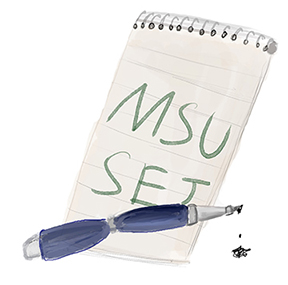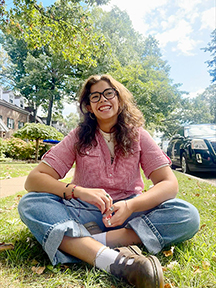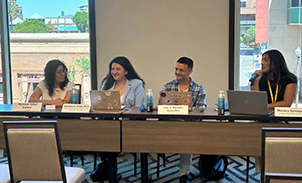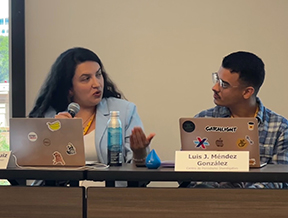 How to report on an underserved community and their sensitive information
How to report on an underserved community and their sensitive information
This is the 3rd in a series of articles about reporting skills by Knight Center students who attended the 2025 Society of Environmental Journalists conference.
By Isabella Figueroa Nogueira

Isabella Figueroa Nogueira
With the new Trump administration, reporting on Latinx communities has been more difficult than ever to keep undocumented people and their information safe.
SEnvironmental journalists discussed that situation at the 2025 Society of Environmental conference in Arizona.
The panel was called “When There Is No Data Available: How to Report Environmental Stories on Latinx Communities in a Hostile Administration?”
The panelists talked about the many ways reporters can collect the data needed to report while protecting marginalized communities.
Monica Samayoa, a climate reporter at Oregon Public Broadcasting, talked about walking in neighborhoods and knocking on doors with someone the community knows and trusts, like a lawmaker or a community leader. Talking to people face-to-face can make them feel comfortable sharing their sensitive information.

MSU SEJ LATINEX PANEL
Door-to-door knocking can be effective in some places, but not in Puerto Rico, according to Luis J. Méndez González, a climate change investigative reporter at Centro de Periodismo Investigativo.
People will kick you out of their homes if you knock on their door and try to get information out of them, he said.
“I call them. I’ll talk to them about the issue and, if they feel comfortable, then I will go to their homes or maybe I will meet them in a church or in a business,” said Méndez González.
 However, in Puerto Rico and some other places, an effective way to do reporting on environmental stories is to build religious ties. Finding a church with a Spanish-speaking mass or asking the priest about the community can help in finding the people needed.
However, in Puerto Rico and some other places, an effective way to do reporting on environmental stories is to build religious ties. Finding a church with a Spanish-speaking mass or asking the priest about the community can help in finding the people needed.
Once you have collected the data but before you’ve written about the information you’ve gathered from reporting, there are some safety measures you should consider in advance.
A large part of building trust is being careful with the data that is being collected, especially now with AI, said Myriam Vidal Valero, a freelance journalist.
“You start feeding AI with names, addresses, things like that – you never know where this information is going to go. Even when you have that information in Google Sheets or something. Depending on the sensitivity, or how sensitive the information is, you need to treat it as if it was your own personal information. You need to be really careful with it,” said Vidal Valero.
Not being careful with the information that is received could lead to a risk of deportation, personal safety concerns and potential life-threatening situations to the people being helped, Vidal Valero said.
